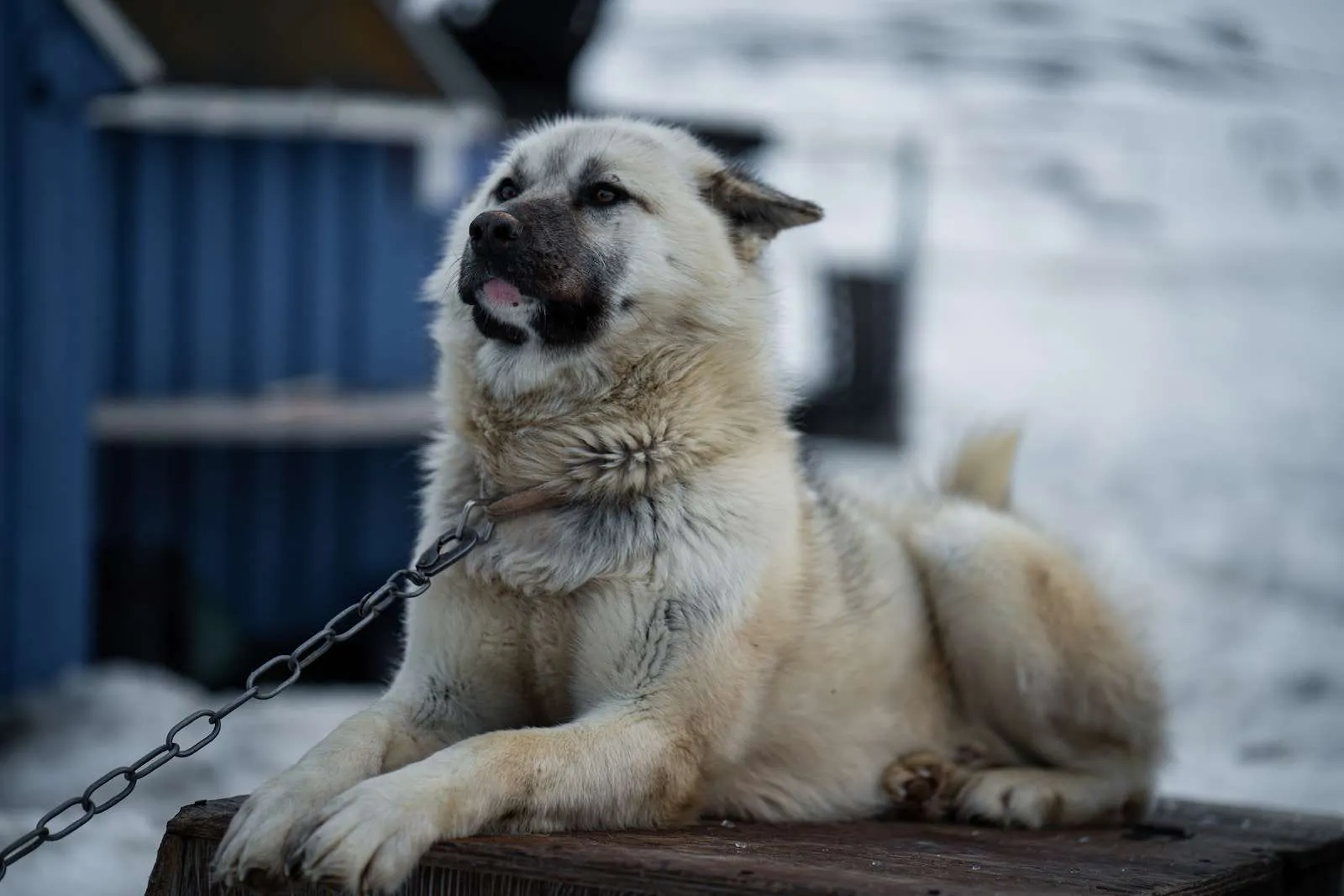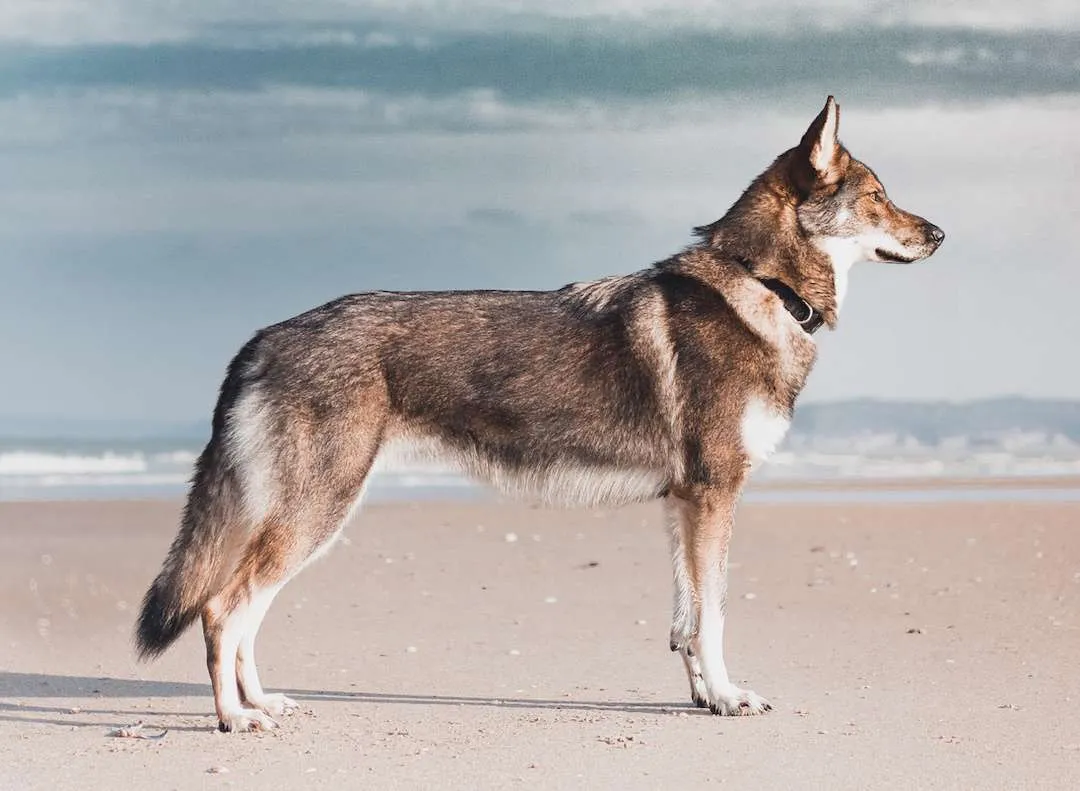Statistics:
- Height: 19 to 21 inches
- Weight: 45 to 65 pounds
- Life Span: 12 to 15 years
- Diet: A well-balanced diet that meets the nutritional needs of a high-energy breed.
Harrier Overview:
The Harrier is a medium-sized hound breed known for its agility, speed, and friendly nature. Often described as a smaller version of the English Foxhound, the Harrier is a scent hound with a keen sense of smell, originally bred for hunting hare and fox in England. This breed’s friendly and outgoing personality makes it an excellent family companion, while its hunting instincts and athleticism appeal to active individuals and those with outdoor lifestyles.
Harrier Highlights:
- Hunting Heritage: The Harrier has a strong hunting background, with a keen sense of smell and natural tracking abilities.
- Energetic and Athletic: This breed requires regular exercise and enjoys engaging in various physical activities.
- Friendly and Sociable: Harriers are known for their friendly and sociable nature, getting along well with children, other dogs, and even strangers.
Harrier Evolution and History:
The Harrier’s origins can be traced back to medieval England, where it was selectively bred to be a scent hound for hare and fox hunting. The breed’s name is derived from the Norman word “hara,” which means “hare.” Harriers were popular among English nobility for hunting, but they also gained popularity among commoners due to their excellent hunting skills and friendly disposition.
Harrier Size and Weight:
The Harrier is a medium-sized hound breed, typically standing between 19 to 21 inches at the shoulder and weighing around 45 to 65 pounds.
Harrier Personality:
Harriers are friendly, outgoing, and sociable dogs. They form strong bonds with their families and get along well with children and other pets. Due to their hunting heritage, Harriers have a strong prey drive, but their friendly nature makes them more amenable to living in multi-pet households.
The Adaptability of the Harrier:
Harriers can adapt well to various living situations, provided they receive enough exercise and mental stimulation. They can do well in both urban and rural environments as long as their exercise needs are met.
Harrier Temperament:
Harriers are known for their friendly and affectionate temperament. They are social dogs that enjoy being part of the family’s activities. However, due to their hunting instincts, they should be supervised around smaller pets, such as cats and rabbits.
Harrier Maintenance and Grooming:
The Harrier has a short, dense coat that requires minimal grooming. Regular brushing to remove loose hair and routine nail trimming and dental care are sufficient to keep the Harrier looking its best.
The Trainability of the Harrier:
Harriers are intelligent but can be independent and stubborn, which can sometimes present challenges in training. Using positive reinforcement techniques and maintaining consistency are essential for successful training sessions.
Exercise Needs of the Harrier:
Harriers are active and energetic dogs that require regular exercise to keep them physically and mentally stimulated. Daily walks, playtime, and opportunities to run in a secure, fenced area are necessary to keep this breed content and well-behaved.
Harrier Health:
Overall, Harriers are a healthy breed, but like all dogs, they may be prone to certain health issues. Some common health concerns for Harriers may include:
- Hip Dysplasia: A genetic condition where the hip joint doesn’t develop properly, leading to joint problems and discomfort.
- Ear Infections: Due to their long, floppy ears, Harriers may be prone to ear infections if not regularly cleaned and checked.
- Obesity: Harriers can gain weight easily if not provided with enough exercise, leading to obesity-related health issues.
Harrier Care:
Regular veterinary check-ups, a well-balanced diet, and proper exercise are essential components of caring for a Harrier’s overall well-being.
Harrier Feeding:
A high-quality dog food that meets the nutritional needs of a high-energy breed is essential to keep the Harrier healthy and at an appropriate weight.
Harrier Coat Color and Grooming:
Harriers come in a variety of colors, including black and tan, lemon and white, and tricolor. Their short coat requires minimal grooming, but regular brushing will help keep shedding under control.
Harrier and Children:
Harriers are generally good with children and can be excellent family dogs, thanks to their friendly and social nature.
Harrier and Other Pets:
With proper socialization and early introductions, Harriers can get along well with other pets in the household.
Similar Dogs:
- English Foxhound: Harriers share a close resemblance to English Foxhounds, as both breeds were developed for hunting and have a similar friendly and sociable temperament.
- Beagle: Harriers and Beagles are both hound breeds known for their excellent sense of smell and tracking abilities. They also share a similar size and affectionate nature.
Harrier FAQs (Frequently Asked Questions)
- Are Harriers Hypoallergenic?Hypoallergenic dogs have become increasingly popular among allergy sufferers and individuals with sensitivities to pet dander. These breeds are said to produce fewer allergens, making them a suitable choice for those who wish to enjoy the companionship of a furry friend without suffering from allergic reactions. One such breed that… Read more: Are Harriers Hypoallergenic?
- Are Harriers Good For First Time Owners?Thinking about getting a dog for the first time? It’s an exciting decision, but also one that requires careful consideration. With so many breeds to choose from, it can be overwhelming to decide which one will best suit your lifestyle and needs. One breed that often catches the eye of… Read more: Are Harriers Good For First Time Owners?
- Can Harriers Live In Apartments?When it comes to choosing the right pet for apartment living, there are several factors to consider. Space availability, exercise needs, noise levels, and temperament are all important considerations. This brings us to the question: can harriers live in apartments? Let’s delve deeper into this topic and find out! The… Read more: Can Harriers Live In Apartments?
- Are Harriers Good Family Dogs?Choosing the perfect dog to join your family is an exciting and important decision. If you’ve been considering adding a Harrier to your household, you’re in the right place! In this blog post, we’ll delve into whether Harriers make good family dogs. So, let’s dive in! The History of Harriers… Read more: Are Harriers Good Family Dogs?
- Are Harriers Good With Other Dogs?If you’re considering adding a Harrier to your furry family, one question that may arise is whether or not they get along well with other dogs. As sociable creatures, it’s important for us to understand their compatibility with other canine companions before making a decision. In this blog post, we… Read more: Are Harriers Good With Other Dogs?
- What type of coat do Harriers have?Welcome to our blog post where we delve into the fascinating world of Harrier coats. If you’ve ever wondered what type of coat these lovable dogs possess, you’re in the right place! In this article, we will explore various aspects of Harrier coats, including their characteristics, grooming needs, and tips… Read more: What type of coat do Harriers have?
- Are Harriers Easy To Train?When it comes to selecting a new furry companion, one of the key factors that potential dog owners often consider is how easy the breed is to train. Training your pup not only helps them become well-behaved and obedient but also strengthens the bond between you and your canine friend.… Read more: Are Harriers Easy To Train?
- What Were Harriers Bred For?If you’re a dog lover, chances are you’ve come across the charming and energetic breed known as the Harrier. But have you ever wondered what these adorable dogs were originally bred for? In this blog post, we’ll explore the fascinating history of Harriers and shed light on their original purpose.… Read more: What Were Harriers Bred For?

